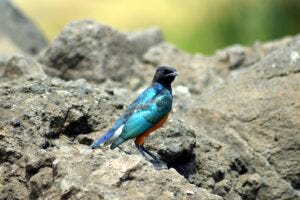April 8, 2022

Bluebird Bio is cutting its workforce and prioritizing late phase gene therapy projects to reduce costs.
The US biotech announced the staff cuts this week, explaining the aim is to deliver up to $160 million in operational savings over the next two years. It did not share further details.
At the start of the year, Massachusetts-based Bluebird said it employed 518 people, 330 of whom work in R&D with 188 engaged in commercial, finance, legal, business development, human resources, information technology, facilities and other general administrative functions.

Image: Stock Photo Secrets
CEO Andrew Obenshain said, “The decision to reduce our workforce in support of a more focused set of priorities was not taken lightly, and we are grateful to every bluebird who has helped to progress the field of gene therapy and championed our mission.”
The “focused priorities” include beti-cel, a beta-thalassemia therapy, and the adrenoleukodystrophy candidate eli-cel. The products are due to reviewed in consecutive FDA meetings on June 9 and 10. The FDA has set PDUFA dates of August 19 and September 16, respectively.
Bluebird added that it may submit a biologics license application (BLA) for lovotibeglogene autotemcel (lovo-cel), a gene therapy for sickle cell disease, in the first quarter of 2023. The US FDA has imposed a partial clinical hold on trials of the product.
Bluebird said the cost savings generated will bring it through crucial upcoming milestones. The firm said it “continues to evaluate additional financing options, including public or private equity financings and monetizing any priority review vouchers that may be issued upon approval of beti-cel or eli-cel.”
Going concern concerns
The new cutbacks come just a few weeks after Bluebird warned about its finances it its fourth quarter report.
“The Company’s restricted cash, cash and cash equivalents and marketable securities balance was approximately $442 million, including restricted cash of approximately $46 million, as of December 31, 2021,” the firm said.
“The full-year 2022 cash burn is expected to be less than $400 million. The Company’s expectation to generate operating losses and negative operating cash flows in the future and the need for additional funding to support its planned operations raise substantial doubt regarding its ability to continue as a going concern for a period of one year after the date that its consolidated financial statements for the year ended December 31, 2021 are issued.”
Analysts at RBC welcomed Bluebird’s decision to restructure, focusing on its lead programmes and deprioritize cryopreserved apheresis and next gen conditioning “is the right strategic decision in this environment as it should allow the company to have enough cash to get through key upcoming catalysts without relying on potential monetization of PRVs [Priority Review Vouchers].”
About the Author
You May Also Like




